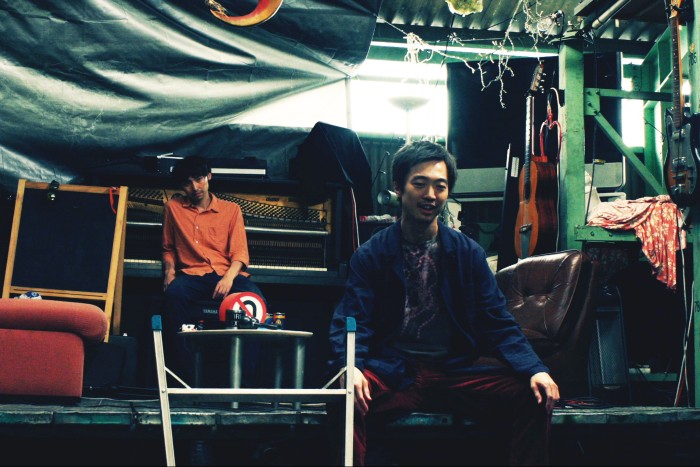Mittsu no hikari (Three Lights)

This is the world premiere of Mittsu no hikari (Three Lights), the fourth feature film by Japan’s Kohki Yoshida, who both wrote and directed it. The movie follows four individuals, two men and two women, as they attempt to navigate the vagaries of modern urban life in Tokyo.
The women, Aoi, a pre-school teacher, and Michiko, a call centre employee, are both stuck in loveless relationships with men for whom they are little more than maids, cooks, and providers of sexual pleasure. When she is not working, Aoi spends her days lying in bed, recording herself playing simple melodies on the keyboard and uploading the videos online. Michiko, once she has cleaned up after her husband, sits at her kitchen table staring out the window while the Roomba zooms around her feet.
Meanwhile, Masaki is a tennis instructor who spends his nights trying to create music with his enigmatic, domineering friend K in an old warehouse. Masaki invites Michiko, with whom he is having an affair, to come and record something in the building. Michiko convinces Aoi, whose fiancé has just left her, to play for Masaki and K, who hope to sell their improvised creations to a major record label.
Three Lights is inspired by a real-life warehouse on the outskirts of Tokyo. Yoshida observed the musicians there for over three years before he developed his film collectively with the actors, building the narrative from their actual talents (Hiroshi Suzuki, who portrays Masaki, apparently really does play a lot of tennis).
The world of the warehouse, with its twinkling fairy lights, out-of-tune piano and moon hanging from the ceiling, is tantalising, but the picture’s meandering narrative can be difficult to connect with. Kohki Yoshida is trying to make a quietly grand statement about the nature of artistic collaboration and the desire to create authentic work, but Yawn of Sleepy’s intriguing music, L’équipe’s sound, and some artsy camera angles by Takayuki Shida cannot save his poorly paced script. Unfortunately, Three Lights does not itself convey the passionate energy of the Tokyo warehouse that inspired Yoshida to make the film in the first place.
Alissa Rubinstein
Mittsu no hikari (Three Lights) does not have a UK release date yet.
For further information about the 67th Berlin Film Festival visit here.
Read more reviews from the festival here.





















Facebook
Twitter
Instagram
YouTube
RSS